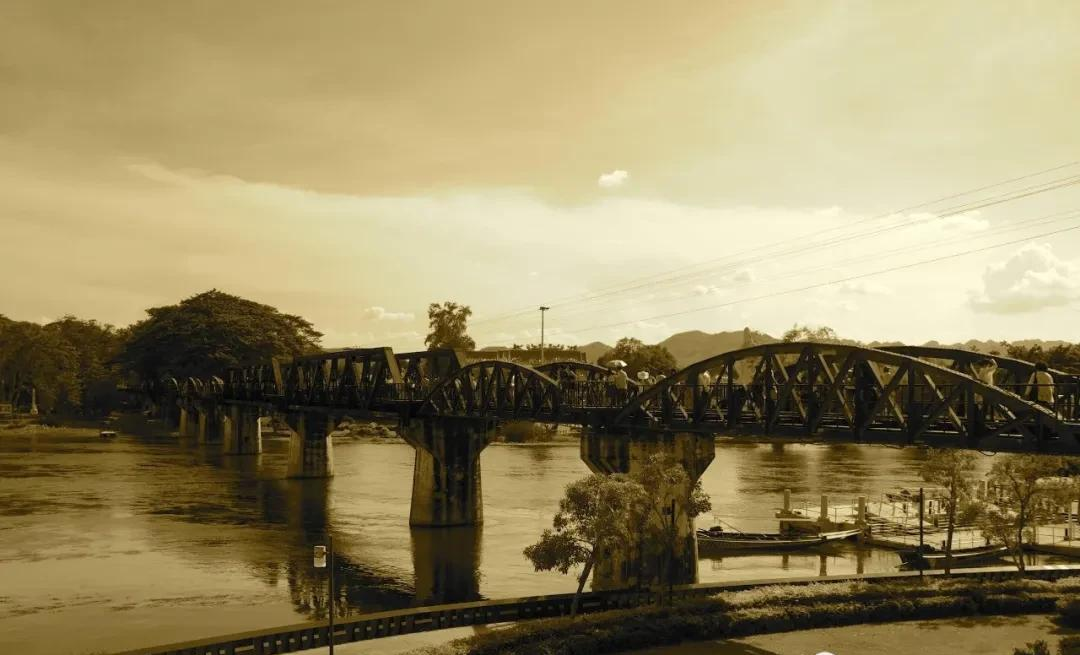
"Bridge on the River Kwai": the game between gentleman's honor and national righteousness
Huang Zihong
The 1957 British film "The Bridge on the River Kwai" tells the story of British officers forced to build the Bridge of the River Kwai for the Japanese army during World War II, and then went all out to prevent the bridge from being blown up by a British task force. In 1958, he won the 30th Academy Awards for Best Picture and the 15th Golden Globe Awards for Best Picture in the Drama Category.
Set against the backdrop of world wartime anti-fascism in Southeast Asia, the film unfolds the great and distinctive differences in national consciousness between Allied nations, as well as a game of honor, reason, and emotion.
In 1943, British Colonel Nicholson and his subordinates became prisoners of the Japanese and were ordered to build the Bridge over the River Kwai in western Thailand.
The task of repairing the bridge did not go well, and all the soldiers except the officers were passive and sluggish. Saito was both soft and Nicholson, but eventually compromised under the pressure of the construction schedule. Nicholson and his officers must direct their men to repair the bridge by May 20.
With the help of Thai villagers who hate the Japanese in the area, Hills, who has always had an escape plan, finally escapes from Japanese control and prepares to return to the United States, but he encounters the British Special Force 316.
Because Hills was familiar with the situation and out of his long-standing national hatred for the Japanese army, he decided to stay and become a guide for the British army.
Meanwhile, Major Walden and Joes, who volunteered for the operation, parachuted onto safe land and headed for the Japanese-controlled Bridge on the River Kwai with the goal of blowing up the River Kwai Bridge.
Walden found that the Bridge over the River Kwai was not a hastily completed temporary building, but rather a well-built and refined building.
After all, the Bridge over the River Kwai was the result of the combined efforts of Nicholson's sergeants. Although Nicholson's practice was "aided and abetted", he himself believed that this was a symbol of british military honor and a manifestation of the noble demeanor of a "gentleman". Although they were prisoners, they still proved to the Japanese the quality and taste of the British soldiers.
With the help of locals, Hills, Joas, and Siamese leaf laid out the explosives that blew up the bridge in advance and prepared to blow up the bridge as soon as the train passed.
However, the next morning, Nicholson, who was patrolling the bridge, spotted the lead of the explosives exposed to the water.
Nicholson takes Saito to check it out, and Joes rushes out in time to stab Saito to death.
Joes told Nicholson that he was going to blow up the Bridge over the River Kwai, and Nicholson was so surprised that he wanted to protect his hard-earned work, so he tried to stop Joes.
Impulse is the devil! The quarrel between the two alarmed the other Japanese guards, after which Hills and Joes were wiped out by Japanese fire.
Nicholson was shot and fell down after discovering his mistake, and his body just hit the explosive starter...
The Bridge of the River Kwai was annihilated by the sound of explosions, and a story about the difference in national consciousness and the hatred of the country and the hatred of the family was finally drawn with a series of ellipses that wanted to be returned, leaving many thoughts for future generations.